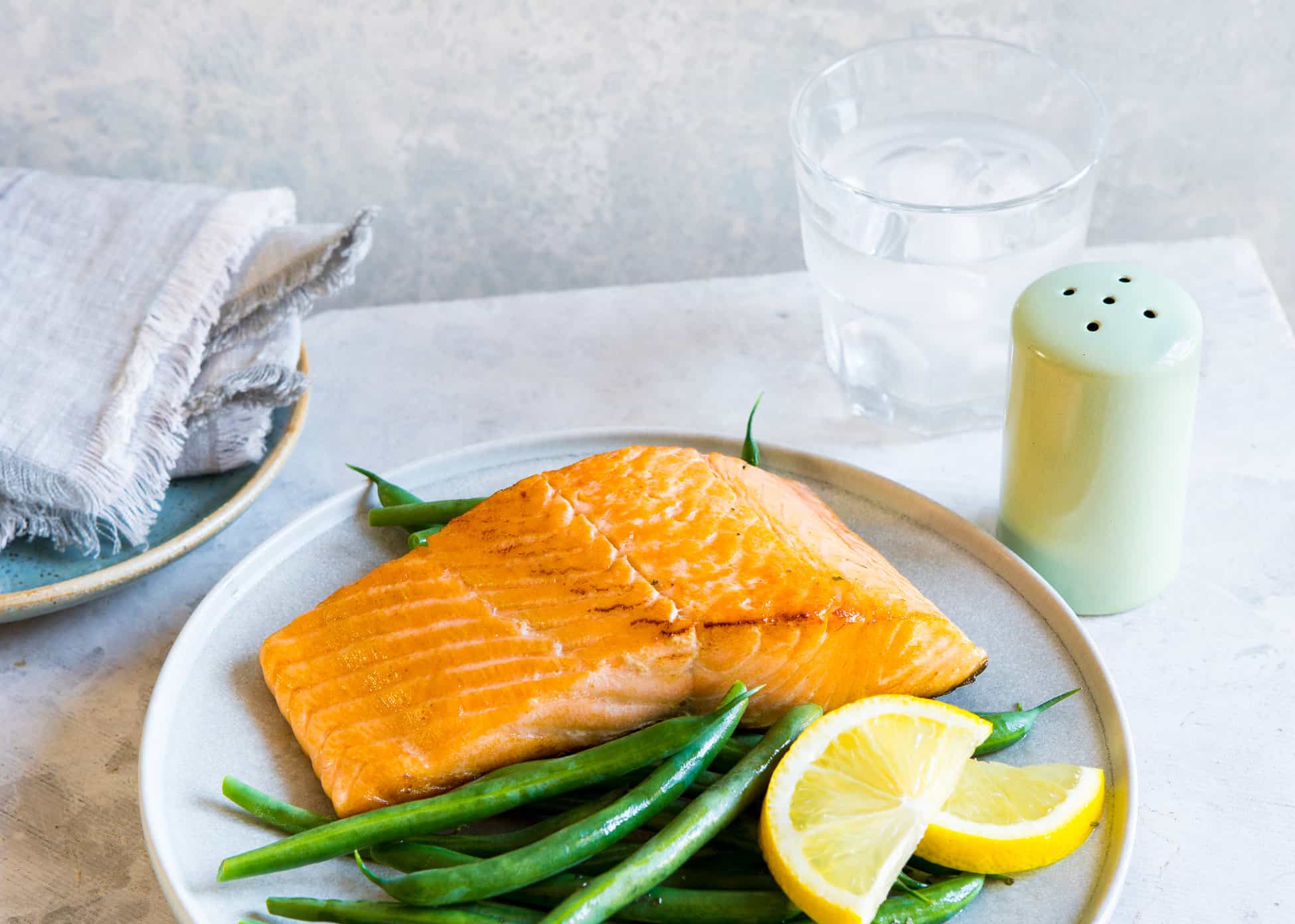- You can eat rice and still lose weight—as long as you maintain a calorie deficit.
- The amount of rice you eat determines whether you gain or lose weight, not the rice itself.
- Pair rice with foods low in calorie density and high in dietary fiber and protein, so it’s easy to eat within your calorie range and feel satisfied.
When you’re trying to lose weight, you might hear that you should cut out rice. But it’s okay to go against the grain on this popular misconception.
At Noom, we don’t believe you should have to cut out the foods you love to lose weight—rice included. Moderation is key to a healthy diet.
Here’s everything you need to know about rice and weight loss.
Note: Consult your health care provider before making any dietary changes.
Can you lose weight eating rice?
Yes, you can still lose weight if you eat rice—as long as you maintain a calorie deficit. That means you’re burning more calories than you consume.
Rice has a moderate caloric density, meaning that it has more calories for its weight than less calorie dense foods like fruits or vegetables.
So if you eat too much rice in your diet, you may end up eating too many calories overall. This will make it hard to sustain a calorie deficit.
The takeaway? You can eat rice and lose weight, but be mindful of portion sizes.
Keep in mind that calorie deficit targets depend on a variety of factors, like age, body weight, height, activity level, and more.
But be sure to check in with your doctor, dietitian, or nutritionist to confirm you’re aiming for a calorie deficit that is right for your body.
Real results with a personalized weight loss program
Take the quiz!

What is the best rice for weight loss?
Brown rice is a bit more nutritious than white rice, but both types have similar calorie amounts.
So if your goal is to lose weight, choose the rice you love most. The more satisfied you are, the less likely you are to overindulge.
Here’s how different types of rice stack up as far as calories and nutrients go. That way, you can choose the best variety of rice for your weight loss plan.
Brown rice
Brown rice is a great option when you’re trying to lose weight. Why? Because it’s whole grain rice, and whole grains can help with weight management.
At Noom, we consider brown rice a green food—meaning it has a relatively low caloric density. As we mentioned before, this refers to a food’s calorie amount relative to its weight or volume.
A 1/2 cup of brown rice has 124 calories and is packed with nutrients like fiber. And according to the Cleveland Clinic, fiber may make you feel fuller for longer periods. That way, you’re less likely to overeat or get hungry between meals.
White rice
White rice gets a bad rap because it’s a refined grain. So you may think you have to give it up to get to your goal weight.
But it’s perfectly fine to enjoy white rice in moderation—especially if it’s a staple part of your meals.
In fact, for many cultures, eating white rice is important. You don’t need to give up your culinary traditions or favorite foods to lose weight.
White rice has about 103 calories per 1/2 cup, but it doesn’t have the same nutritional value as brown rice.
If possible, make sure that the white rice you’re eating is enriched. That way, you’re still getting the B vitamins and iron lost during processing.
Fiber isn’t re-added to enriched white rice, so balance the grain with fiber-rich foods—for example, legumes, vegetables, and fruits.
Is it okay to eat rice every day?
Yes, it is okay to eat rice daily. Just make sure you watch your portions to maintain your calorie deficit.
But how much rice is too much rice? And how much rice should you eat per day to lose weight? We dive into that next.
How much rice should you eat per day to lose weight?
The U.S. Department of Agriculture (USDA) recommends that adults following a 2,000-calorie diet eat six-ounce equivalents of grains (including rice) per day. Of those grains, three-ounce equivalents should be from whole grains and the other three from refined grains.
One ounce equivalent of grains equals a 1/2 cup of cooked rice.
But since daily calorie goals are different for each person, you can find the exact recommendation for your diet here.
How does rice affect weight loss?
It’s not the rice itself that affects weight loss—it’s the amount consumed.
That’s why portion size is so important. Stick with the USDA’s daily grain serving recommendations, and be mindful of your calorie intake to maintain a deficit.
Reflection exercise:
Think about what’s making it difficult to monitor your portions of rice throughout the day. It might be that you don’t realize you’re eating too much rice. Food logging can help.
With food logging, you track how much rice and other foods you’re eating each day. And a tool like Noom Weight can help you log your food intake to make it easier to stay within your calorie deficit.
You can even plan your meals ahead of time by logging your food in advance. That way, you’re not going over your allotted calories for the day or the daily rice serving sizes from the USDA.
What are the health benefits of rice?
The health benefits of rice will depend on whether you’re eating white rice or brown rice.
Research suggests that whole grains, like brown rice, may help lower cholesterol levels and your risk of diseases—like heart disease, stroke, obesity, and type 2 diabetes.
Meanwhile, the Cleveland Clinic states that white rice may be easier for people with sensitive stomachs to digest than brown rice. And enriched white rice is rich in folic acid, a nutrient recommended during pregnancy for prenatal development.
What is the best weight-loss-friendly way to prepare rice?
The way you prepare rice isn’t as important as the amount you eat or what foods you pair it with.
When you’re trying to lose weight, pair rice with other low-calorie-dense foods that are high in fiber and protein.
Research indicates that protein and fiber are linked to satiety, so these foods will keep you from munching throughout the day.
So eat USDA-recommended portions of rice with high-fiber veggies (think broccoli or carrots) and lean protein sources (like legumes, poultry, or fish).
That way, you’ll properly satisfy your hunger throughout the day and won’t break your calorie deficit.
Carbs (including rice) don’t stop weight loss
It’s important to know that you can still eat carbohydrates—like rice—and lose weight.
In fact, at Noom, we don’t believe there are “good” or “bad” foods. We just encourage balance.
Want ideas on how to accomplish this balance on your wellness journey? Check out this list of the best foods for weight loss that you can pair with your next serving of rice.





